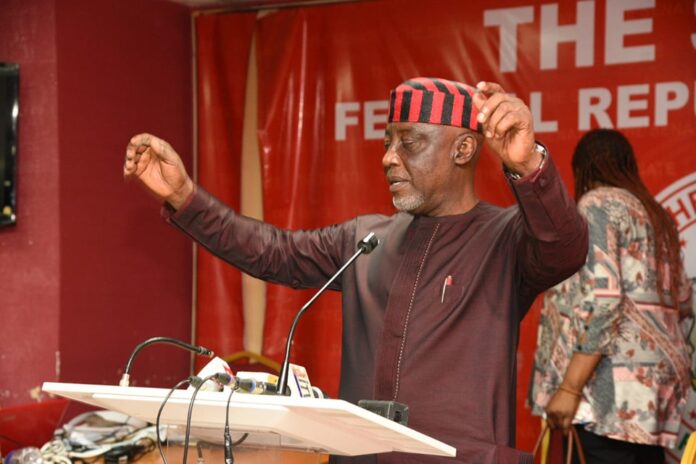The Senate chamber turned into a theatre of cheers, caution, and political drama on Tuesday as Senator Kelvin Chukwu, representing Enugu East, formally abandoned the Labour Party (LP) for the ruling All Progressives Congress (APC).
What was meant to be a routine announcement quickly morphed into a heated exchange that laid bare the widening gulf between Nigeria’s shrinking opposition and the swelling dominance of the APC.
Chukwu, who rode into the Senate in 2023 on the crest of sympathy votes following the tragic assassination of his elder brother, Senator Oyibo Chukwu, and on the momentum of the Labour Party’s “Obidient” wave, told colleagues he could no longer remain in a fractured house. His resignation letter, read by Senate President Godswill Akpabio, cited “internal wranglings, leadership crisis, policy disagreements, and lack of cohesion” as reasons for his exit.
He declared that the APC under President Bola Ahmed Tinubu offered a “more stable, progressive, and inclusive platform” to serve his constituents.
The ruling party senators erupted in applause. Senate Leader Opeyemi Bamidele and Deputy Senate President Jibrin Barau hailed the defection as proof of the APC’s unstoppable pull. Bamidele quipped: “Labour is on the ground, PDP is torn apart, and the other minor parties are defunct. The right thing is to join us so we can move Nigeria forward.”
Minority Leader Abba Moro rose sharply, his voice cutting through the jubilation. In a stinging rebuke, he reminded the chamber that Chukwu’s mandate was born from tragedy, not loyalty.
“My brother came here on the Obidient movement. He came here on the sympathy vote because an accident happened,” Moro said pointedly, warning that Chukwu’s political capital was less about personal merit and more about circumstance.
Moro went further, firing a warning shot at Akpabio himself: “This house is becoming too full, and it should concern you. An overcrowded majority is a danger to parliamentary democracy.”
The Minority Leader’s words drew murmurs across the chamber, briefly tempering the celebratory mood. But Akpabio, smiling, dismissed the caution as an “emotional observation.” He insisted defections were constitutional and applauded Chukwu’s move as “a welcome addition to the progressive family.”
For the APC, Chukwu’s crossover was another trophy in a season of defections, a visible sign of President Tinubu’s tightening grip on the legislature. For the Labour Party, however, it was another blow to a movement already struggling to translate its electoral momentum into coherent, sustainable political influence.
Analysts note that Chukwu’s shift could recalibrate power dynamics in Enugu politics, a state long dominated by the PDP where LP made shock gains in 2023. His departure, they say, highlights a familiar Nigerian reality: political allegiance often bends toward survival and access to power rather than ideology.
With the APC bench growing louder by the week, Moro’s warning now hangs in the air: how many more defections before the Red Chamber ceases to be a forum of democratic contest and becomes, instead, a one-party choir?

